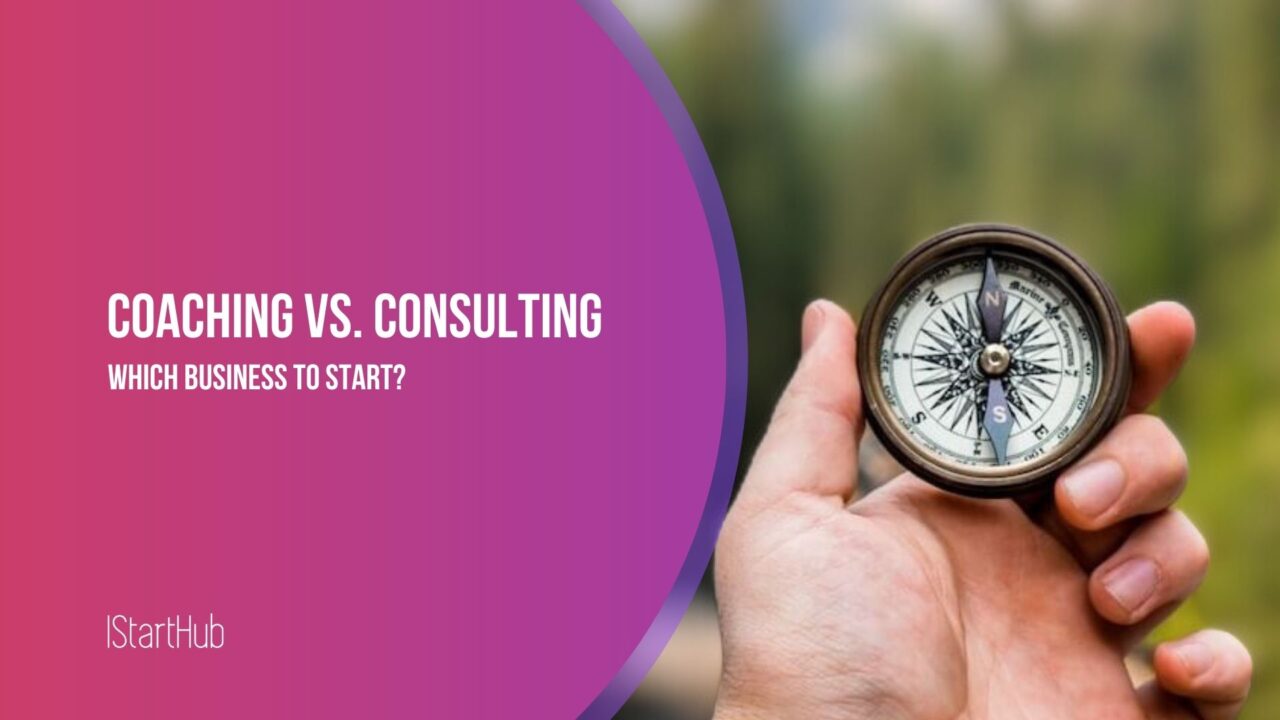The event industry is like a huge fun-making machine that unites people from different spheres and with different skills. Starting an event planning business requires hard work, but this work can easily grow into a money-making machine for you.
If you have ever been responsible for the organization of any event at least once in your life, be it a birthday party or a family holiday, you can understand all that pain and headache of being ‘an event planner’.
To bring people together at a planned time and place, under any circumstances making them have fun and controlling everything is not as easy as it seems from the start.
I have always wondered why so many people start an event planning business.
Only when I started it myself, did I understand that it is a business that can be started with zero investment.
So, I am very excited to write about the event planning business for a number of reasons.
Firstly, as I mentioned above, this is the first startup project I am proud to launch with my partner in 2008. The period of world economic crisis is… perfect time for business! Why not? 🙂
Secondly, all you need to start an event planning business is your desire, persistence, and, maybe, some creativity.
And, finally, starting an event planning business is very interesting. It is a perfect investment in your networking. Also, you can always be at the center of events, involving lots of creative people and getting huge management experience very fast. And, of course, you can visit so many parties you have never even imagined in your life. So, how to start an event planning business? Let’s dive in.
Event Business Industry Overview
The forecast for the Global Event Planning Service market between 2023 and 2030 indicates a substantial uptick in growth. As of 2022, the market has been steadily expanding, driven by the proactive strategies employed by key industry players.
Analysts at Allied Market Research project substantial growth in the event planning market. According to their research, the event industry will grow to an impressive $1.5529 trillion by 2028. This translates to a remarkable compound annual growth rate (CAGR) of 11.2 percent for the period spanning from 2021 through 2028. It’s clear that starting an event planning business can bring lots of opportunities in the years ahead.
What is event planning?
Event planning is the process of organizing and managing all the details necessary to run a successful event. This process includes careful consideration of the event’s purpose, budget, logistics, and coordination of various components to ensure that the event meets its goals and runs smoothly. Event planning can encompass a wide range of events, from weddings and corporate conferences to parties, fundraisers, and more.
How to Start an Event Planning Business: 5 Simple Steps
1. Define the type of events you would like to organize
Surely, you can learn how to organize any event. But as far as you may know, riches are in the niches. It is better to select the sphere you either have experience in or it is very interesting to you.
There are the following types of events you can consider for the event planning business:
Weddings (weddings, including ceremonies and receptions)
Corporate Events (conferences, seminars, workshops, and corporate parties)
Social Events: (birthday parties, anniversary celebrations, and family reunions)
Trade Shows and Expos (exhibitions, trade shows, and industry-specific expos)
Concerts and Music Events (music festivals, concerts, and live music events)
Product Launches: (introduce new products or services to the market)
Conferences and Conventions (large-scale conferences and conventions for various industries)
Sports Events: (sporting events, tournaments, and races)
Fashion Shows (fashion shows and runway events for designers)
Food and Beverage Events (food festivals, wine tastings, and culinary events)
Educational Events: (workshops, seminars, and educational conferences)
2. Choose a name for an event planning business
Your event planning business name should reflect your style and the type of events you specialize in. Also, when defining a name for your business, consider checking the domain for availability.
You can use HostGator to get a low-price domain and hosting for your event planning business website.
So, what are some best event-planning business name ideas? Here they are:
- EventMasters
- Dream Event Creations
- Perfect Plan Events
- Stellar Occasions
- Sparkling Soirees
- Elite Event Architects
- Opulent Moments
- Aisle & Style Events
- Royal Revelry
- Graceful Gatherings
- LuxeLife Events
- Blissful Occasions
- Timeless Celebrations
- Signature Events & Co.
- Glamour & Grace Productions
- Majestic Memories
- The Event Emporium
- Posh Affairs
- Enchanting Elegance
- Elite Edge Event Planning
- Celestial Ceremonies
- Refined Reflections Events
- Radiant Occasions
- Velvet Vow Events
- Pure Perfection Planners
So, you can choose any of the name ideas mentioned or create your own depending on your event planning business niche.
3. Event planning business plan
An event planning business plan is your main document to understand the processes, market, vision, and further steps. Remember, that this document can be changed with time, so do not try to make it perfect.
Here’s a business plan sample. Remember to keep it professional and straight to the point.
Sample Event Planning Business Plan [Your Event Planning Business Name]
1. Executive Summary
- Business Name, Location, and Founding Date
- Mission Statement
- Brief Overview of Your Event Planning Services
- Target Market and Unique Selling Proposition (USP)
- Financial Summary (Sales Projections, Investment Needs)
2. Business Description
- Detailed Description of Your Event Planning Business
- Legal Structure (e.g., Sole Proprietorship, LLC, Corporation)
- Vision and Goals
3. Market Analysis
- Industry Overview (Event Planning)
- Target Market Analysis (Demographics, Behavior, Needs)
- Competitive Analysis (Key Competitors, SWOT Analysis)
- Market Trends and Growth Opportunities
4. Services Offered
- List of Event Planning Services Offered
- Pricing Strategy (Pricing Packages, Payment Terms)
5. Marketing and Sales Strategy
- Marketing Plan (Online and Offline Marketing Channels)
- Sales Strategy (Sales Process, Customer Relationship Management)
6. Operational Plan
- Location (Physical or Virtual Office)
- Equipment and Technology Needs
- Suppliers and Partnerships
- Staffing Requirements (Roles and Responsibilities)
- Workflow and Processes
7. Financial Plan
- Startup Costs
- Sales Projections (Monthly/Annual)
- Break-Even Analysis
- Profit and Loss Statement
- Cash Flow Statement
8. Risk Analysis
- Identify Potential Risks (e.g., Market Risks, Operational Risks)
- Risk Mitigation Strategies
9. Legal and Regulatory Compliance
Business Licenses and Permits – Insurance Requirements – Intellectual Property (Trademarks, Copyrights).
Here are the legal requirements for event planning business
- Business Structure: Choose a legal structure for your business, such as a Sole Proprietorship, LLC, or Corporation. Register your business with the appropriate government authorities.
- Operating Agreement: If you choose to structure your business as an LLC, consider creating an operating agreement to define ownership and operational procedures.
- Sales Tax Permit: If your state imposes sales tax on event planning services, obtain the necessary sales tax permit and understand your tax obligations.
- Insurance: Business insurance will protect your business from potential legal claims.
- Health and Safety Regulations: Required if you are serving food, alcohol, or conducting outdoor events.
- Environmental Regulations: If you plan outdoor events, comply with environmental regulations related to waste disposal and land use.
- Alcohol Licensing: If you plan to serve alcohol at events, obtain the necessary alcohol licenses and permits, which can be highly regulated.
- Music Licensing: Ensure you have the appropriate licenses to use copyrighted music at events, especially if you’re playing recorded music or hiring live performers.
- Zoning and Land Use Regulations: Comply with local zoning laws and land use regulations if you use specific venues or locations.
- Safety and Security Measures: Implement safety and security measures to protect attendees at your events, including crowd control and emergency response plans.
10. Summary
Summarize the key points of your business plan – Express your confidence in the business’s success
Customize each section with specific details about your event planning business, market research, financial projections, and unique value proposition. Try to keep the language clear and concise.
4. Open an LLC online
Forming an LLC for your event planning business not only provides legal protection but also gives your venture a professional and trustworthy image.
You can simplify the process and open an LLC online by using Zen Business. Zen Business is a reputable online platform that offers comprehensive services to help entrepreneurs like you save time and navigate the various steps involved in establishing an LLC.
Here’s how Zen Business can assist you in the processes mentioned above:
1. Name Search and Registration: Zen Business can help you check the availability of your desired business name and handle the submission of your Articles of Organization to the appropriate state authorities.
2. Registered Agent Service: They can serve as your registered agent, ensuring that you receive important legal documents and notifications promptly.
3. Operating Agreement Assistance: Zen Business provides templates and guidance for creating a customized operating agreement that aligns with your business structure and objectives.
4. EIN Application: They can assist you in obtaining an EIN from the IRS, simplifying the process of securing this essential identification number.
5. Ongoing Compliance Support: Zen Business offers compliance services, including annual report filing reminders, to help you meet your state’s ongoing requirements.
6. Business Banking Solutions: They can recommend suitable banking options to facilitate the opening of a business bank account.
7. Access to Business Insurance: Zen Business can connect you with insurance providers to explore insurance options tailored to your event planning business.
5. Event business budgeting: learn to estimate events
Plan your collaboration with the client beforehand. Create a commercial offer template and think about pricing. Probably you should think about it before starting to call all of your contacts.
The price you can sell your project depends only on your professional approach. The sphere of show business doesn’t dictate fixed prices, so one event can bring a good profit.
But if you fail the project, it won’t be easy to find a new client and involve cool performers again.
So, there are two key variants of how to estimate the event projects and present them to your client:
- Variant 1. Show the price for each event performer to be involved in the event and add your company commission for the service you provide.
- Variant 2. Show only the price for each event performer with zero commission. In this case, the price for event performers will be higher for the client, but entertainers will be perceived by a client as your company team, so they are paying for the staff only.
- For Varian 1 and Variant 2. Do not forget to add the project management commission.
Both variants are working well. You should select the one that suits better for your target market.
Read also: How to Start a Fitness Business from Home
6. Promote your event planning business
People hire companies with recommendations. It often happens that people need event planning services but they feel unsure about trusting their important events to the very first company they see on the internet.
Nevertheless, if you are starting with a local event planning company, marketing won’t require a lot of effort.
Use networking
The first thing you should do is share your idea with your close people. You have all the chances to get your first client from people you know.
It will bring invaluable experience to you as an event planner and, what is more important, open a door to many new clients who will be the guests at your first event.
Define your event planning business target audience
Make sure you know your target audience. In this case, your marketing will be more effective.
So, business people and companies, or students, or maybe families?
The better you know your target audience the easier it is to find clients and promote your event planning business.
Think about the audience you understand better. Think about the value and service you can offer to your client.
A personal note: I remember our first client. We were excited to organize a wedding for a very nice couple and it was our first experience of such an event. Neither I nor my friend was not married at that time. So, I should say that was a huge responsibility to create magic for the people who trusted us in one of the most important events in their lives. But we had no time to be scared. We had to get everything done perfectly and we did it. We analyzed our weak points, but we managed to make our clients happy. And that was the goal!

One of our first events (me on the left, my partner on the right)
7. Collaborate with people from the sphere of show business
You need to google a lot to create a very cool contacts base for your future events. The same concerns the number of calls you should make to connect with all those people and tell them about your awesome project, so they can know about you and be ready to participate in your events once you get a new order.
Conclusion
So, as far as you can see, it is quite easy to start an event planning business. All you need to do is define your niche and target audience, work with your networking, and learn how to promote your business.
So, let’s get the party started!




